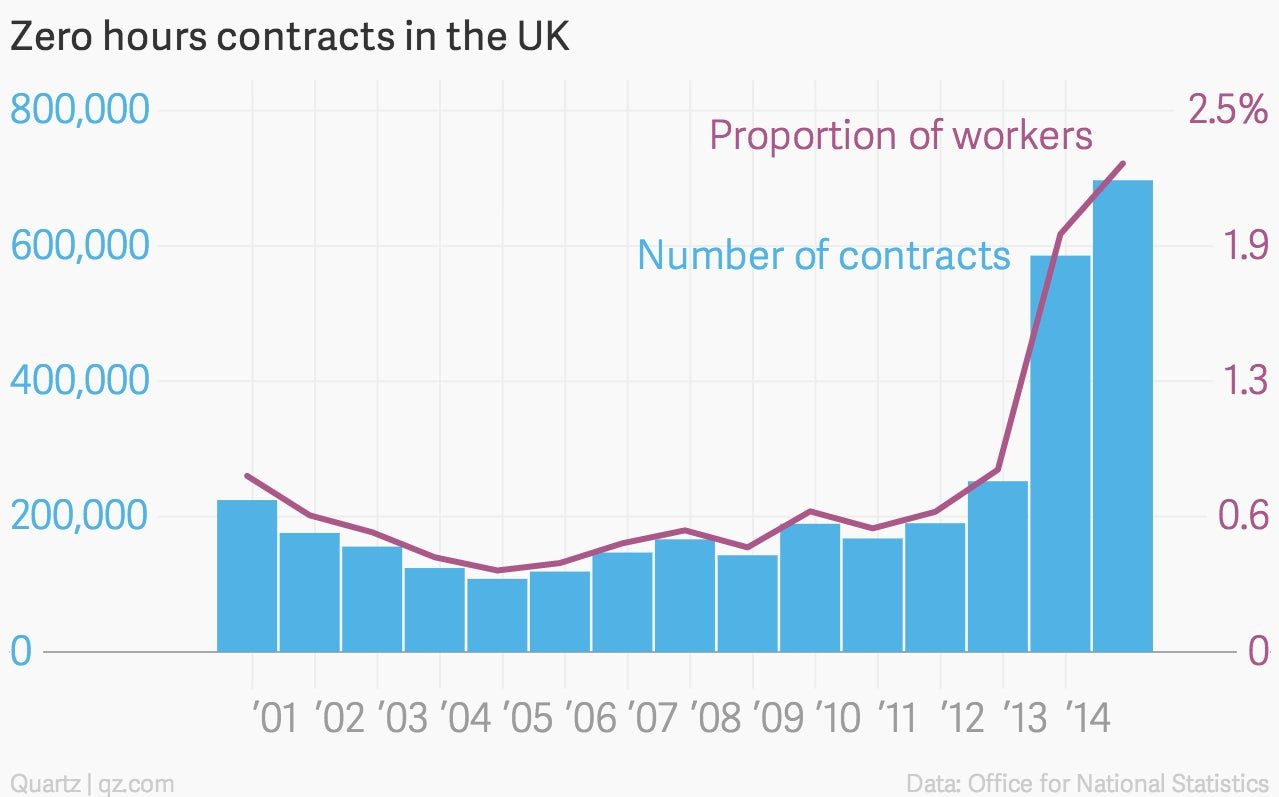700,000 people in the UK have jobs that guarantee no work or pay
Over the last two years, a type of job contract has proliferated in the UK that allows employers to call on workers when needed, and send them home –with no remuneration at all—when business is slow. “Zero hours” contracts, as they’re called, have angered those concerned with workers’ rights. But new official numbers indicate they’re more common than ever.


Over the last two years, a type of job contract has proliferated in the UK that allows employers to call on workers when needed, and send them home –with no remuneration at all—when business is slow. “Zero hours” contracts, as they’re called, have angered those concerned with workers’ rights. But new official numbers indicate they’re more common than ever.
In the period from October to December 2014, 697,000 people said they were on zero hours contracts, or 2.3% of all people in employment.

The Office for National Statistics, which compiled the stats, has a caveat: Because zero hour contracts have been widely discussed in the media, more people now know what to call their job situations. Survey respondents may be aware, when before they were not, of their situation. This may mean the increase is actually smaller than it appears; though also makes it more likely the zero hours workers were undercounted before.
Seasonality, meanwhile, has a big impact on how many contracts are issued. In August 2014, the number of people with contracts but no guaranteed work ballooned to 1.8 million. The food and accommodation industry accounts for the biggest chunk of these contracts, and ice-cream vans, fruit farms, and holiday camps will have accounted for some of the swell.
Those who defend the contracts—including the UK’s business secretary, Vince Cable—say they give flexibility to both workers and businesses. Some use the approach to fit work around other activities: full-time students make up 17% of those on the zero hours contracts, for example.
But others argue that they allow a tiered and exploitative economy to develop, where those who have historically been paid less–such as women–are exploited. A higher proportion of women than men are on zero hour contracts—2.7% of the female workforce, compared with 1.9% of men.
The UK government said in June last year that it would tighten regulation on this kind of work. It has since begun a process to ban exclusivity clauses in zero hour contracts, to prevent employers keeping workers on call for hours, while banning them from working elsewhere.